Ready to deepen your faith in a global setting?
Episcopal Church Young Adult Service Corps opens applications for 2023-24
When program alumni were asked recently if they would recommend a year of international mission engagement through The Episcopal Church’s Young Adult Service Corps (YASC), they answered resoundingly: Yes!
“I would do YASC again and again, if offered a chance,” said the Rev. Ranjit Mathews, who spent 2001-02 in Cape Town, South Africa, serving in the HIV/AIDS office of the Anglican Church of Southern Africa. “It changed my life, opened me to God, to vocation, to new challenges within myself and in the world.”
For more than two decades, YASC has offered Episcopalians ages 21-30 the opportunity to follow Jesus’ way of love into deeper relationship with God and the global Anglican Church while spending a year living and working with communities around the world.
Applications are now being accepted for 2023-24 placements; the deadline to apply online is Feb. 1. Selected applicants will be invited to an in-person discernment retreat at Holy Cross Monastery in West Park, New York, March 22-26; final candidates will attend a two-week cross-cultural orientation session in June.
YASC participants typically serve in the areas of administration/communication, agriculture, community development, education, health care, parish ministry/chaplaincy, social services, and youth work, among other ministries. They participate in the daily life and ministry of churches and cathedrals around the Anglican Communion.
“My YASC year completely changed the direction of my career and life,” said Keri Geiger, a registered nurse and doctoral candidate at Johns Hopkins School of Nursing who served in Hawston, South Africa, in 2013-14. “I entered YASC at a time when I was ready to leave the profession of nursing. Instead, I found my calling.”
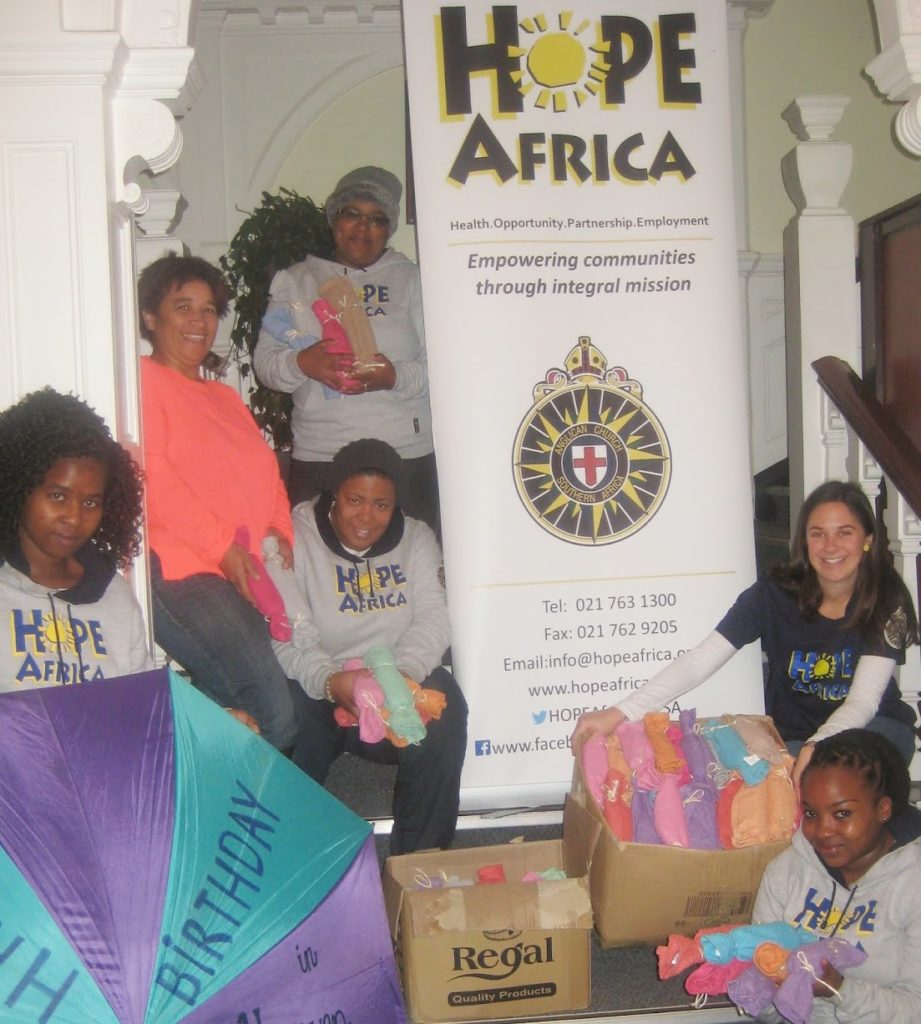
Deeply impacted by the lack of basic health services she saw in low- and middle-income countries—and working for the first time with people living with HIV—Geiger desired to provide healthcare in humanitarian settings. She joined Doctors Without Borders after YASC, working in four African countries during armed conflict, infectious disease outbreaks, and refugee crises. Her current dissertation research focuses on people living with HIV and drug-resistant tuberculosis in—“you might have guessed it,” Geiger said—South Africa.
“Serving people in crisis by providing high-quality, compassionate healthcare has become the driving purpose of my life,” she said. “Every day that I’m in the field, I get to live out my baptismal covenant to seek and serve Christ in all persons, to strive for justice and peace among all people, and to respect the dignity of every human being.
“I would never have found this calling without YASC,” she said.
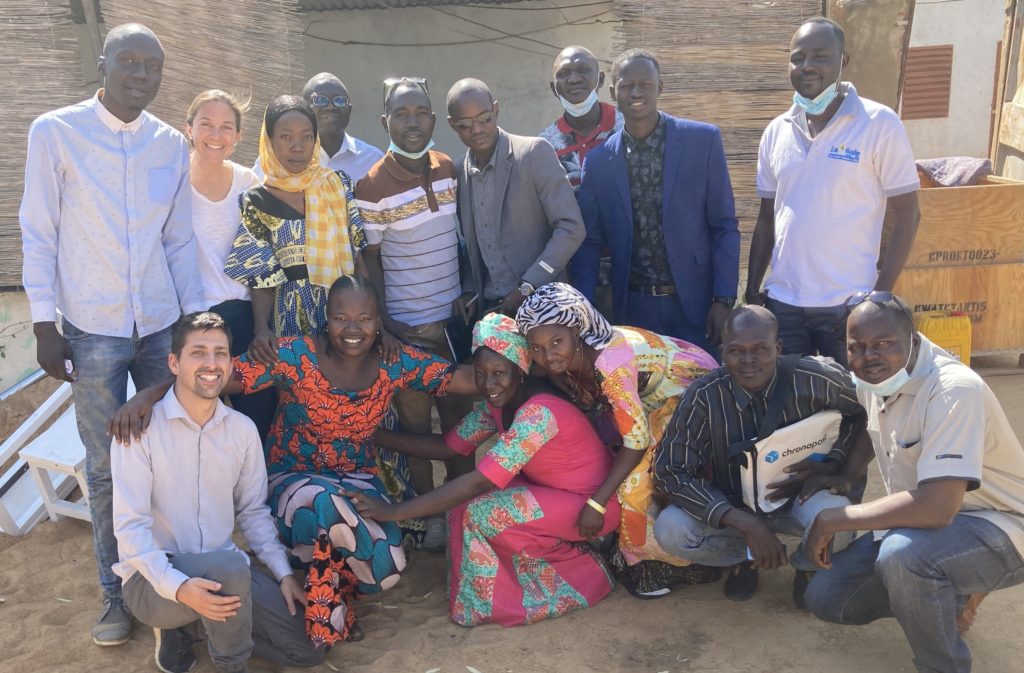
Twelve years before Geiger, Mathews—who is canon for mission advocacy, racial justice, and reconciliation, for the Episcopal Church in Connecticut—also served his YASC year with the Anglican Church of Southern Africa, working as assistant to the canon missioner to the province for HIV/AIDS.
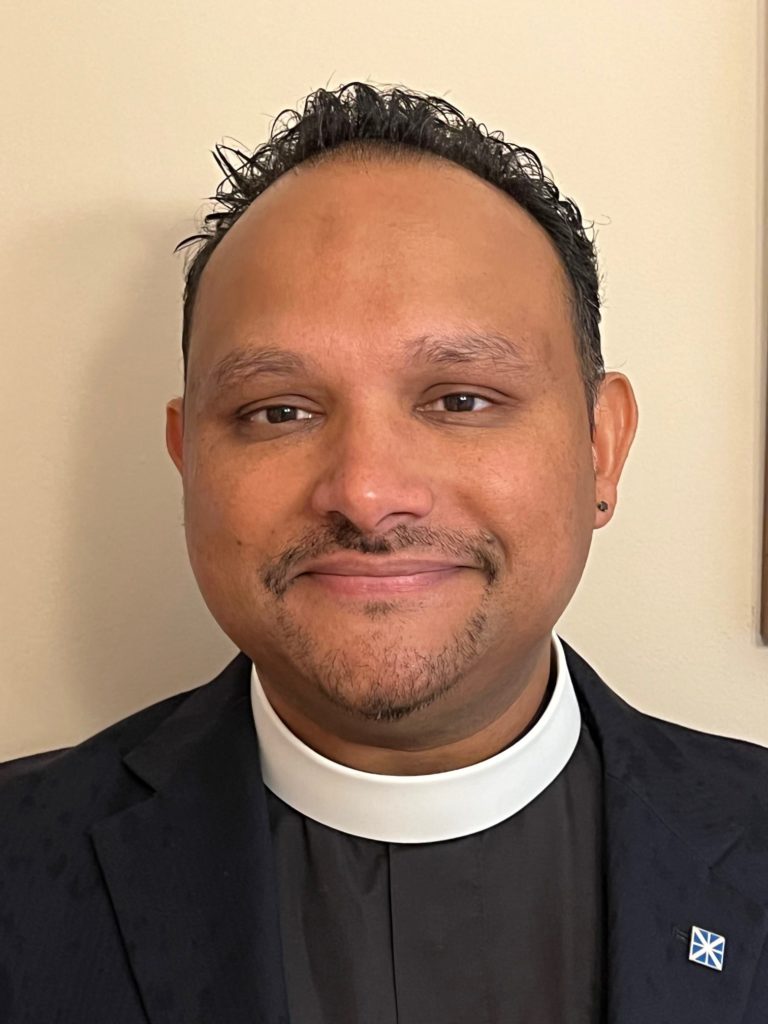
“My YASC experience had a profound impact on my life,” he said. “Serving in Cape Town at the cathedral during the ravages of HIV/AIDS in Southern Africa helped me see the levels of human suffering I had been shielded from as a middle-class U.S. citizen, while also witnessing the actions of the Anglican church to care for all those affected.”
Among many memorable experiences that year—including being at St. George’s Cathedral in Cape Town during the 9/11 terrorist attacks—was an invitation for Mathews to dine one evening with Archbishop Desmond Tutu and his wife, Leah.
“He has always been a faith leader I looked to for inspiration and integrity,” Mathews said. “It was an incredible experience I will never forget.”
Mathews was recently elected to be the clergy representative of The Episcopal Church to the Anglican Consultative Council. “I know that my experience as a YASCer in Cape Town has made me a leader who listens first, asks questions out of curiosity, and, I hope, is more reflective and understanding of the complexity of the Anglican experience in different parts of the world,” he said.
Mitchell Honan—who is canon for finance and property for the Episcopal Diocese of South Dakota—spent 2016-17 with YASC in Haiti, where he taught English at two Episcopal schools, among other tasks.
“The experience that I had with YASC changed my life,” he said. “I had been on a track to work in financial investing, and I could see at that time that it was not what I wanted. YASC gave me the chance to try something that I hoped I would be good at, and to break with the path I sensed myself to be on.”
Spencer Cantrell is director of federal affairs at the Johns Hopkins Center for Gun Violence Solutions. She credits her YASC time in Hong Kong from 2010-11, advocating for migrant domestic workers, with setting her on her career path.
“YASC was an incredibly formative experience,” she said. “I learned countless lessons about being of service to others and what advocacy and client empowerment means.”
Her time in the program also strengthened her faith. “I think a lot of this was through challenging my faith in ways it hadn’t been previously,” she said, noting the horrific suffering many of her clients had been through. “I also came to have a different understanding of the church’s role in justice.”
Amanda Akes-Cardwell also served with YASC the same year as Cantrell, working for HOPE Africa, the social development arm of the Anglican Church in Southern Africa. She now works as missioner for faith formation and development for the Episcopal Diocese of Washington. Like Cantrell, she saw her faith grow during those months.
“Leaving my country, community, and context behind in order to serve in YASC created space within me to rely more fully on God,” she said. “The more I relied on God, the more I discovered about God, the more I grew in relationship with God. At the same time, I was forming new friendships and learning new cultures. I was being formed throughout it all into a more aware and adept person and leader in ways that I can’t imagine happening had I not participated in YASC.”
Since the start of YASC, young adults have served in 41 countries, and, in 2023, placements may include, but not be limited to, Costa Rica, Dominican Republic, Ecuador, El Salvador, England, France, Honduras, Italy, Japan, Kenya, Mexico, the Philippines, South Africa, Sri Lanka, and Tanzania.
Cantrell noted that YASC might naturally attract young adults discerning a clergy call, but emphasized that the program offers much more.
“There are such a variety of jobs and opportunities that folks can do in YASC to help them discern a variety of vocations,” she said. “I would encourage anyone who wants to explore how God calls them to walk humbly with God and love their neighbor like themselves to consider the opportunity and see whether it might be a good fit.”
¿Preparado para profundizar tu fe en un entorno global?
El Cuerpo de Servicio de Jóvenes Adultos de la Iglesia Episcopal inicia el periodo de solicitudes para 2023-24
Cuando recientemente se les preguntó a ex alumnos del programa si recomendarían un año de compromiso misionero internacional a través del Cuerpo de Servicio de Jóvenes Adultos (YASC) de la Iglesia Episcopal, la respuesta fue un ¡Sí! Rotundo.
“Haría el YASC una y otra vez si se me diera la oportunidad”, dijo el Rvdo. Ranjit Mathews, que estuvo en 2001-02 en Ciudad del Cabo, Sudáfrica, sirviendo en la oficina de VIH/SIDA de la Iglesia Anglicana del Sur de África. “Cambió mi vida, me abrió a Dios, a la vocación, a nuevos desafíos dentro de mí y en el mundo”.
Durante más de dos décadas, el YASC ha ofrecido a los episcopales de entre 21 y 30 años la oportunidad de recorrer el camino de amor de Jesús hacia una relación más profunda con Dios y con la Iglesia Anglicana mundial, viviendo y trabajando durante un año en comunidades alrededor del mundo.
Ya se están aceptando solicitudes para las colocaciones de 2023-24; la fecha límite para hacer una solicitud en línea es el 1 de febrero. Los candidatos seleccionados serán invitados a un retiro de discernimiento en persona en el Monasterio Holy Cross [solo disponible en inglés] en West Park, Nueva York, del 22 al 26 de marzo; los candidatos finalistas asistirán a una sesión de orientación intercultural de dos semanas en junio.
Los participantes en el YASC suelen prestar servicio en las áreas de administración o comunicación, agricultura, desarrollo comunitario, educación, atención médica, ministerio parroquial/ capellanía, servicios sociales y trabajo con jóvenes, entre otros ministerios. Participan en la vida cotidiana y en el ministerio de las iglesias y catedrales de toda la Comunión Anglicana.
“Mi año en el YASC cambió por completo el rumbo de mi carrera y de mi vida”, expresó Keri Geiger, enfermera diplomada y candidata para recibir el grado de doctorado de la Escuela de Enfermería Johns Hopkins, quien sirvió en Hawston, Sudáfrica, en 2013-14. “Entré en el YASC en un momento en el que estaba lista para abandonar la profesión de enfermería. El resultado fue todo lo contrario: encontré mi vocación”.
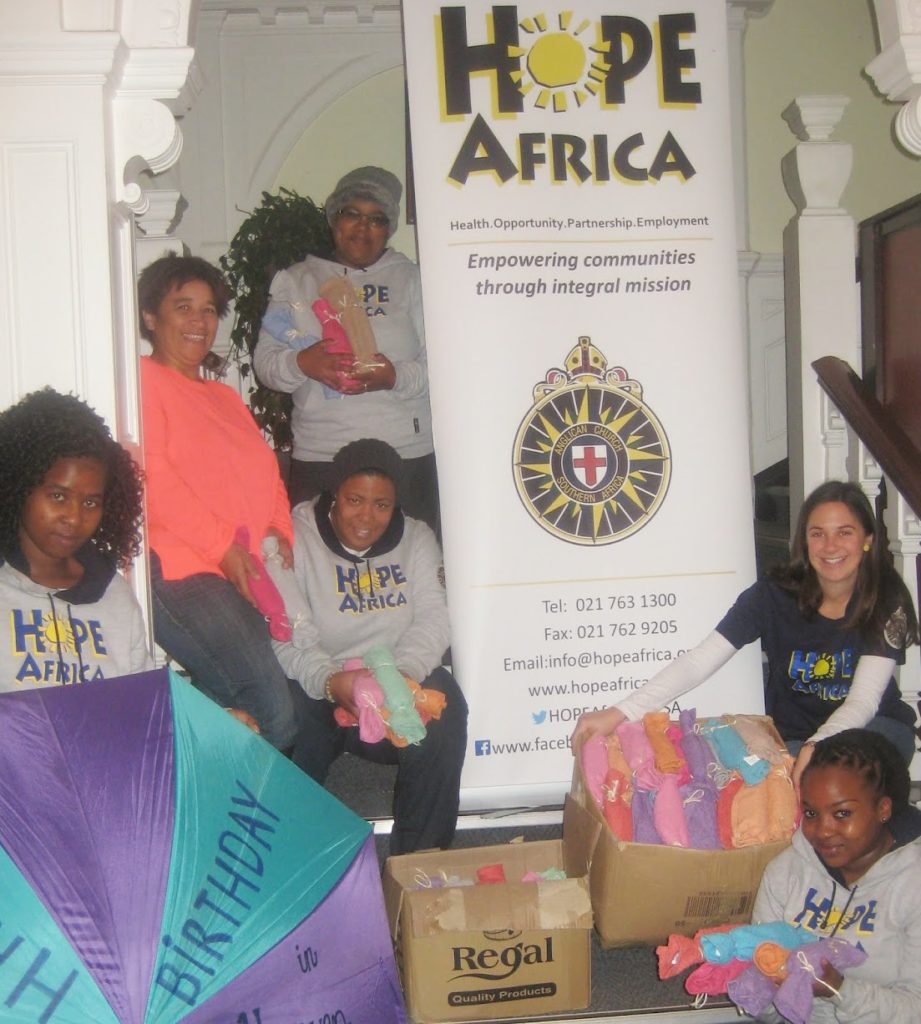
Geiger se sentía profundamente afectada por la falta de servicios básicos de salud que observó en países de ingresos bajos y medios, y estaba trabajando por primera vez con personas seropositivas. Ella deseaba prestar atención médica en entornos humanitarios. Después del YASC, se incorporó a Médicos Sin Fronteras, donde trabajó en cuatro países africanos en medio de conflictos armados, brotes de enfermedades infecciosas y crisis de refugiados. Su tesis doctoral actual se centra en las personas que viven con el VIH y la tuberculosis farmacorresistente en… a ver si adivinan… ¡Sudáfrica!, dijo Geiger.
“Servir a las personas en crisis mediante el brindar la atención médica compasiva y de alta calidad se ha convertido en el objetivo de mi vida”, afirmó. “Cada día que estoy en el campo, vivo mi pacto bautismal de buscar y servir a Cristo en todas las personas, luchar por la justicia y la paz entre todos los pueblos y respetar la dignidad de todo ser humano.
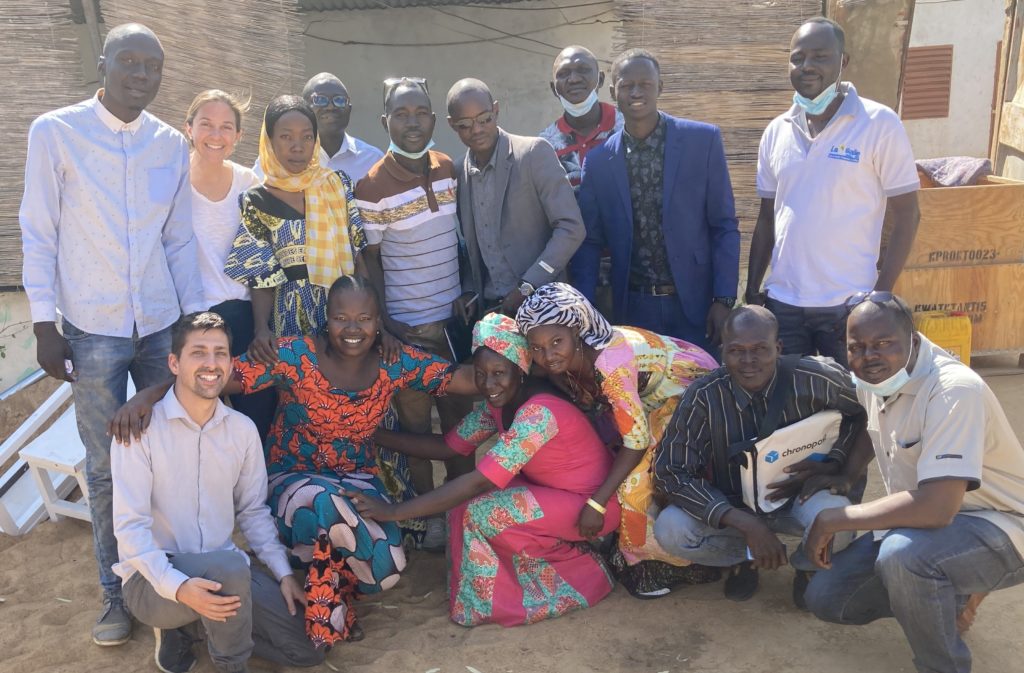
“Nunca habría encontrado esta vocación sin el YASC”, afirma.
Doce años antes que Geiger, otra persona, el canónigo Mathews, dedicado al tema de la defensa de la misión, la justicia racial y la reconciliación de la Iglesia Episcopal de Connecticut, también realizó un año en el YASC con la Iglesia Anglicana del Sur de África, y trabajó como asistente del misionero canónigo de la provincia para el VIH/SIDA.
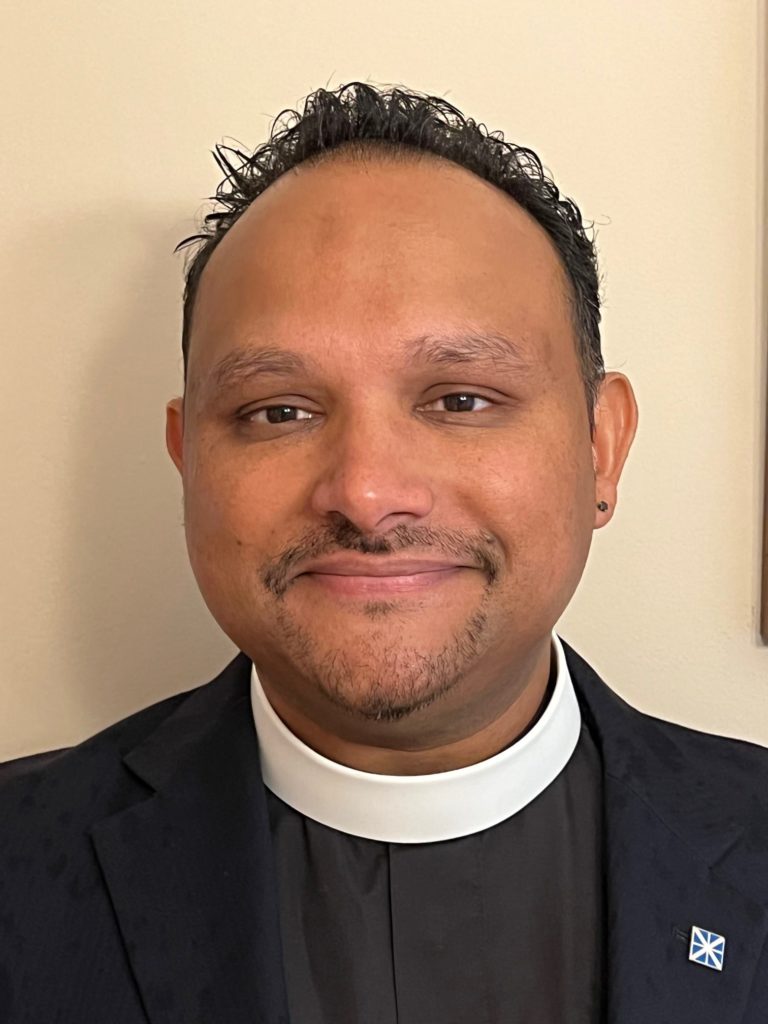
“Mi experiencia en el YASC tuvo un profundo impacto en mi vida”, dijo. “Servir en la catedral en Ciudad del Cabo en medio de los estragos causados por el VIH/SIDA en el sur de África me ayudó a ver los niveles de sufrimiento humano de los que había estado protegido como ciudadano estadounidense de clase media, a la vez que fui testigo de las acciones de la iglesia anglicana para atender a todos los afectados”.
Entre las muchas experiencias memorables de ese año, incluida su presencia en la catedral St. George en Ciudad del Cabo durante los atentados terroristas del 11 de septiembre, Mathews recibió una noche una invitación a cenar con el arzobispo Desmond Tutu y su esposa, Leah.
“Siempre ha sido un líder religioso al que he recurrido para obtener inspiración e integridad”, dijo Mathews. “Fue una experiencia increíble que nunca olvidaré”.
Mathews fue elegido recientemente representante del clero de la Iglesia Episcopal ante el Consejo Consultivo Anglicano [solo disponible en inglés]. “Sé que mi experiencia como parte del YASC en Ciudad del Cabo me ha convertido en un líder que primero escucha, hace preguntas por curiosidad y, espero, es más reflexivo y comprensivo de la complejidad de la experiencia anglicana en diferentes partes del mundo”, expresó.
Mitchell Honan, quien es canónigo de finanzas y propiedades de la Diócesis Episcopal de Dakota del Sur, pasó el curso 2016-17 en el YASC en Haití, donde enseñó inglés en dos escuelas episcopales, entre otras tareas.
“La experiencia que tuve en el YASC me cambió la vida”, afirmó. “Había estado trabajando en inversiones financieras y en ese momento me di cuenta de que eso no era lo que yo quería. El YASC me dio la oportunidad de probar algo en lo que esperaba ser bueno, y de romper con la ruta que estaba tomando”.
Spencer Cantrell es directora de asuntos federales del Centro Johns Hopkins para Soluciones contra la Violencia Armada. Atribuye el tiempo que pasó en el YASC en Hong Kong entre 2010 y 2011, abogando por las trabajadoras domésticas inmigrantes, el haberla encaminado en su carrera.
“El YASC fue una experiencia increíblemente formativa”, indicó. “Aprendí innumerables lecciones sobre estar al servicio de los demás y lo que significa la defensa y el empoderamiento del cliente”.
Su paso por el programa también fortaleció su fe. “Creo que gran parte de ello se debió a que mi fe se vio desafiada de maneras que no había experimentado antes”, dijo, señalando el horrible sufrimiento por el que habían pasado muchos de sus clientes. “También llegué a tener una comprensión diferente del papel de la iglesia en la justicia”.
Amanda Akes-Cardwell también colaboró con el YASC el mismo año que Cantrell, trabajando para HOPE África, el brazo de desarrollo social de la Iglesia Anglicana en el sur de África. Actualmente trabaja como misionera para la formación en la fe y el desarrollo de la Diócesis Episcopal de Washington. Al igual que Cantrell, vio crecer su fe durante esos meses.
“Dejar atrás mi país, mi comunidad y mi contexto para servir en el YASC creó un espacio dentro de mí para confiar más plenamente en Dios”, dijo. “Cuanto más confiaba en Dios, más descubría sobre Él y más crecía mi relación con Él. Al mismo tiempo, hice nuevas amistades y aprendí nuevas culturas. Todo esto me estaba convirtiendo en una persona y en una líder más consciente y hábil, no creo que esto hubiese ocurrido si no hubiera participado en el YASC”.
Desde el inicio del YASC, los jóvenes adultos han servido en 41 países, y, en 2023, las colocaciones incluirán, sin limitarse, a Costa Rica, República Dominicana, Ecuador, El Salvador, Inglaterra, Francia, Honduras, Italia, Japón, Kenia, México, Filipinas, Sudáfrica, Sri Lanka y Tanzania.
Cantrell señaló que el YASC atrae de forma natural a jóvenes adultos que disciernen un llamado al clero, aunque recalcó que el programa ofrece mucho más.
“Hay una gran diversidad de trabajos y oportunidades que se pueden hacer en el YASC y que pueden ayudar a discernir una variedad de vocaciones”, dijo. “Yo los invito a explorar cómo Dios los está llamando a caminar con humildad junto a Él, a amar al prójimo como a ustedes mismos, a tener en cuenta esta oportunidad y ver si podría ser una buena opción”.

